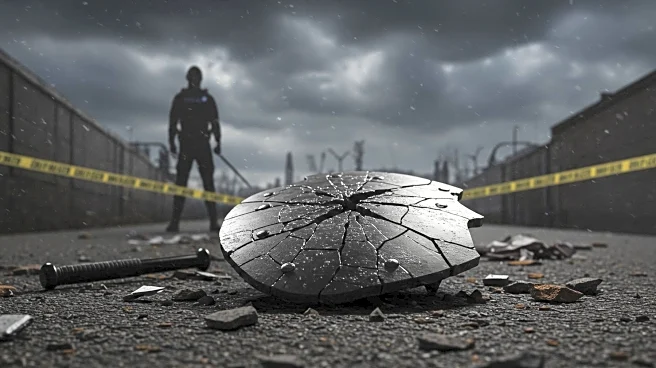What is the story about?
What's Happening?
In Serbia, tensions have escalated as student-led protests turned violent, leading to clashes with police and the burning of party offices. The protests, which have been ongoing since November following a tragic train station collapse, have intensified with demonstrators accusing the government of corruption and police brutality. President Aleksandar Vucic has resisted calls for early elections and accused the protesters of foreign influence. The situation has drawn international attention, with the Secretary General of the Council of Europe calling for calm and respect for peaceful assembly.
Why It's Important?
The escalation of protests in Serbia highlights growing discontent with President Vucic's administration, which has been accused of stifling democratic freedoms and allowing corruption to flourish. The unrest poses a significant challenge to Vucic's leadership and could impact Serbia's aspirations for European Union membership. The international community is closely monitoring the situation, as further violence could destabilize the region and strain Serbia's relations with the EU and neighboring countries.
What's Next?
The Serbian government is likely to continue its crackdown on protests, which could lead to further clashes and arrests. The international community may increase pressure on Serbia to uphold democratic standards and address the protesters' grievances. The outcome of these protests could influence Serbia's political landscape and its path towards EU integration.
















